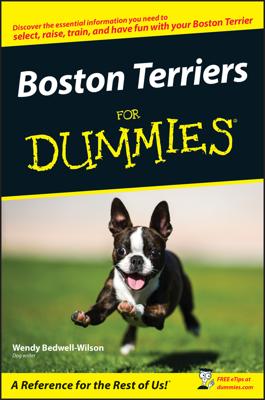Take extra care to protect your puppy from accidents at home, where many household dangers exist in the form of poisons, indigestibles, and obstacles. Remember, none of the suggestions here should take the place of seeing your veterinarian immediately. Knowing what steps to take before you get your puppy to the animal hospital can save his life.
Puppies are insatiably curious creatures. Take a look at your house from your puppy’s point of view: “Plants, cords, and dropped items get a giant reaction from my parents if they’re within hearing distance. What fun!” As a result, you need to essentially baby-proof your home.
Hunting for household dangers
Walk (or better yet, crawl) around your house and look at it from your puppy’s perspective. What looks tempting? You can use duct tape to secure wires, and you can clean off coffee tables and clear bookshelves for the time being. Remember that puppies are like babies: They get into everything for the sheer fun of discovering something new.
Hanging there like a snake, an electrical cord or a telephone wire can be quite tempting to attack and chew. The damage can range from a sharp to lethal shock or a mild to third-degree burn. If you notice a severed cord, check your puppy’s mouth for burns.
Prevent lamp-cord electrocution! Tape all cords hanging 4 feet from the ground to the wall, and pin floor cords to the baseboard. Also, keep a bottle of Bitter Apple spray handy, and each time you see your puppy nosing a wire, spray it immediately.
Taking care of small indigestibles
Some puppies love to swallow what they chew — especially if you’re trying to take the object away from them forcefully. The problem is that not all items can pass through a puppy’s intestines.
Some objects can get stuck inside your puppy, initially causing vomiting, gagging, dry heaves, and coughing, which can go on for days. If that’s not cause enough for alarm, the puppy’s loss of appetite will be. If the intestine is blocked and nothing is done to remove the obstruction, the intestine ruptures, which can be fatal.
Treatment depends on how soon you get your puppy to the vet, because you often don’t know whether the object is sharp or could break (thereby rupturing the intestines), whether it’s small and likely to pass, or whether it’s large enough to block digestion.
Unless your veterinarian can induce your puppy to vomit up the object (which he may or may not be willing to do to guard your dog’s safety), an X-ray is needed to identify what he swallowed. To remove the foreign object, the doctor may order surgery.
Keeping poison control numbers on hand
Put all dangerous substances out of the reach of your pet, just as you’d put them out of the reach of children. You can call the 24-hour National Animal Poison Control Center if your puppy has swallowed something poisonous: (888) 426-4435. (You may be charged a fee. However, its immediate and professional assistance is worth a pot of gold when your puppy is in distress!)
Keep the label of the ingested matter on hand or describe what was swallowed; the operator is trained to talk you through the incident, translate symptoms, and tell you exactly how to handle each incident.
Keep your veterinarian’s number in speed dial and phone him immediately after an accident. Even if your dog seems okay, speak with your veterinarian to discuss the issue and possible preventive tips. Additionally, have a backup plan if your veterinarian is out of the office or on vacation. Ask him to recommend a respected clinic for emergencies.
Avoiding poisonous plants
Inside or out, plants can entertain your puppy for hours. However, not all plants are dog-friendly. In fact, some are deadly.
If your puppy is carrying a plant in his mouth, don’t race toward him. If you do, he perceives your actions as prize envy and may gulp the evidence. Approach calmly and stare at the floor, not into his eyes; then remove the plant from his mouth.

